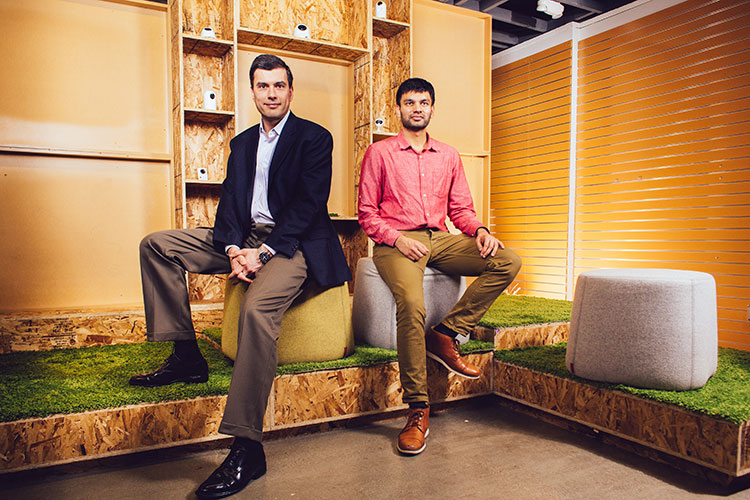Computer vision to protect patients — and budgets
UC Berkeley professor Alexandre Bayen and Ph.D. student Pulkit Agrawal have developed a computer vision-based system to help memory care centers monitor patient falls and to reduce them where possible

February 9, 2018
People with Alzheimer’s are at high risk of falling — and the costs are high to both their health and their bank accounts. Reducing that risk has proven difficult, however.
But a few years ago, UC Berkeley computer science Ph.D. student Pulkit Agrawal turned to research applying computer vision to improve medical care of people with Alzheimer’s.
“There are no effective drugs yet to treat Alzheimer’s,” he says. “Until we have them, we have to help patients where they are. Developing computer vision systems to detect falls and fall vulnerability seemed like a good way to improve healthcare for a growing patient population.”
A system capable of detecting falls by autonomously monitoring patients could help therapists by sending them video clips when a patient stumbles or falls, he says.
Agrawal partnered with Alexandre Bayen, professor of electrical engineering and computer sciences, an expert in mobile sensing, to design and eventually market a reliable, inexpensive computer vision technology to improve detection and risk of falls.
Along with team members, Julien Jacquemot, visiting scholar at UC Berkeley, and Ph.D. student George Netscher, they saw the potential of passive vision-based sensing technology to overcome the limitations of the previous approaches.
With support from the Signatures Innovation Fellows program, they are already developing an automated online detection system for use in large networks of memory care facilities.
Read more on Berkeley Research's Signature Innovation Fellows website